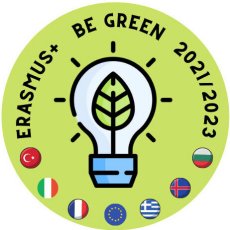The “Institute of Humanities and Social Sciences” (IAKE) is a non-profit scientific association whose main purpose is the academic, theoretical, practical study and research in the fields of humanities, political and social sciences. It operates on the basis of volunteering and solidarity, with the aim of raising awareness and motivation of its members, society, educators and citizens to promote, advance, cultivate the humanities and social sciences.
The Institute of Humanities and Social Sciences is based in the island of Crete and more specifically in Heraklion, a city great in natural beauty, magnificent tourist attractions and ancient treasures. Heraklion, also, stands out for its outstanding gastromony and its authentic traditional life. The notable cultural festivities derive from the renowned Ancient Minoan Civilization and are linked to modern times.
The aims of the Institute are:
The Institute of Humanities and Social Sciences counts as many as six very fertile and effective years of action in Heraklion, Crete and Greece. During this period of time it has organized and carried out six very successful Scientific Conferences with international participation, the Minutes of which, along with a rich archive material, have been published and posted on its website: www.iake.gr. These six conferences have been attended by Professors coming from various Greek and European universities, as well as by a large number of researchers, scientists, managers, educators, teachers, undergraduate and postgraduate students and scholars in the areas of development, planning, innovation, sustainability, cultural management and communication. This annually held Conferences are one of the most important events of the scientific community of the Region of Crete.
Furthermore, the Institute of Humanities and Social Sciences has organized educational and scientific meetings and workshops in Heraklion, Athens, Thessaloniki, Ioannina, Pyrgos and elsewhere in Greece and its Instructors have participated in symposiums and round table discussions at other conferences in Greece, Cyprus, Germany and Austria.
- The 1st International Conference was held in 2015 and its main topic was: ‘Contemporary School through the prism of Humanitites and Social Studies: from theory to everyday practice’.
- The 2nd International Conference was held in 2016 and its main topic was: ‘Local Government, Education, Lifelong Learning and Culture as pillars to Regional Development’.
- The 3rd International Conference was held in 2017 and its main topic was: ‘Humanitarian Sciences, Education, Society and Civic Education’.
- The 4th International Conference was held in 2018 and its main topic was: ‘Democracy, rights and inequalities in the era of economic crisis. Challenges in the field of research and education’.
- The 5th International Conference was held in 2019 and its main topic was: ‘Interdisciplinarity, as a cognitive, educational, and social challenge’.
- The 6th International Conference was held in 2020 and its main topic was: ‘Communication, information, media and education in the late modern era’.
- The 7th International Conference was held in 2021 and its main topic was: ‘Social vulnerability and development - Challenges in education, economy and culture’.
- The 8th International Conference will be held in July 2022 and its main topic will be: ‘Society, Education and Politics: Relations and Restraints’.
The Institute of Humanities and Social Sciences, during these past years, has awarded young scientists who have excelled in the field of Humanities and Social Studies and have presented original research papers and remarkable writing activity. In addition, it collaborates with most Greek Universities on a scientific level as well as with foreign members of the scientific community of European Universities, such as University of Salzburg, University of Bergen, University of Hamburg, University of Bamberg, Western Norway University of Applied Science, University of Augsburg, HAW Hamburg, HAW Landshut, University of the Punjab IIyas Muhammad, Alzahra University, Georgian National University, University Augsburg, University of Landshut Germ, CDA College Cyprus, University Frederick, Open University of Cyprus, University of Guadalajara.
It is with great pride to announce that the Institute of Humanities and Social Sciences has designed and is carrying out the following KA1 Courses:
KA2 Courses:
To conclude with, the European Projects Team of the Institute is already evaluating and processing more Course proposals in collaboration with University Institutions and other European Agencies and is capable of successfully carrying them out, given its past experience and its qualified scientific staff.

Eleni Maraki is the President of the Institute of Humanities and Social Sciences and serves as Head of the Centre for Educational and Consultative Support of Heraklion, Crete. She holds a PhD in Sociology of Education and a Masters’ Degree in the field of ‘Gender and New Educational and Working Environments in the Information Society’. She has a Bachelor Degree in Sociology and in Education.
She is a certified Adult Trainer and has organized and coordinated the program: ‘Learning the Greek Language as a Second Language to Emigrant Employees’ of the Institute of Adult Continuing Education. She is the author of the books: 1. ‘Women in the hierarchy of education’ 2. ‘Information and Communication Technologies (ICT) in Education’ 3. ‘Information and Communication Technologies (ICT) in Special Education’ She was the managing editor of the educational journals: ‘Educational Guidance’ and ‘Modern Guidance on Education’. She was an evaluator of teaching packages designed for primary school. She has taught in educational programmes in Universities in Greece and Cyprus. Her scientific and research interests focus on Intercultural Education, New Technologies in Education, Special Education, Gender Discrimination, Conflict Management, Negotiation and Mediation Techniques.

Manolis Beladakis is the Vice President of the Institute of Humanities and Social Sciences and serves as the Director of the Directorate of Primary Education Directorate of Heraklion in Crete. He holds a PhD in Educational Policy and Intercultural Education and a Master’s Degree in the field of ‘Models of Design and Development of Educational Units’.
He has specialized in Intercultural Education, School Counseling, Professional Guidance, Organization and School Units Management as well as in Special Education. He is the author of the books: 1. ‘Innovations in Education. Concept, Implementation, Management, Evaluation. The Case of the All-day School’ 2. ‘Children’s rights, school climate and the anti-authoritarian education of A.S. Neil’ He was the editor and director of the educational journals: ‘Educational Guidance’ and ‘Modern Guidance on Education’. Mr. Beladakis has participated in boards and committees of the Ministry of Education and in the Educational International Conferences ETUCE and TUAC and in the OECD. He has taught in educational programmes in Universities in Greece and Cyprus. He has great experience as coordinator in many European Comenius and Erasmus+ Programmes. His scientific and research interests focus on Intercultural Education, Educational Management, Conflict Management, Innovation Management, Lifelong learning.

Jenny Psaltaki is the Secretary of Innovative Programs, International Partnerships and Exchange at the Institute of Humanities and Social Sciences. She holds a Master’s Degree in Theory and Practice in Preschool Education. She has an extensive teaching experience in pre-primary education after teaching in public state pre-primary schools in Crete for 28 years.
Mrs. Psaltaki has 20 years of experience in writing, managing and implementing European Lifelong Learning Programs and Erasmus KA1, KΑ2, youth, sport projects. In addition, she was the the promoter of European Primary Programs in the Directorate of Primary and Secondary Education in Crete and an E-Twinning Ambassador of Eastern Crete. Her scientific and research interests focus on lifelong learning, intercultural education and the use of good practices in the educational process.

Rena Markaki is the Secretary for Publications, Library and Materials of the Institute of Humanities and Social Sciences. She holds a PhD with merit in Political Science specializing in the field of Social Statistics. She has a Master’s Degree in Studies in Education – Education Sciences and a Bachelor Degree in Sociology.
She is a social researcher with experience in carrying out quantitative and qualitative surveys and in specialized statistical analysis. Her scientific and research interests focus on social statistics, specialized statistical analysis, research methodology, theories of learning, theoretical knowledge on education, adult education, human resources, management, criminology, counseling psychology and equality of migrants

Niki Beladaki is the Head of the Communication and Public Relations of the Institute of Humanities and Social Sciences. She is Archivist, Librarian and Museum Educator. She has received training in Pedagogical and Technological Education and in Counseling and Guidance. In addition, she has written numerous articles about the emotional intelligence of primary school children, the role of culture and the problem of social integration, the formation of attitudes and perceptions of students in order to preserve cultural heritage, digital libraries and museum educational programs.
She was the producer and presenter in daily information television programmes as well as in other cultural and music television programmes. In addition, she has participated in the European Projects: 1. Art History at the University of Accademia di Belle Arti di Macerata in Italy. 2. Mobility of Youth Workers Project in England 3. Youth in Action Programme on History, Theatre, Arts and Culture in Budapest. Her scientific and research interests focus on the Art of Reading, Creative writing, Theatrical game, Digital Libraries, Digitization of archives and the dissemination of Cultural Heritage. She has been involved in sports and has received several distinctions. She is, also, keen on music and photography.
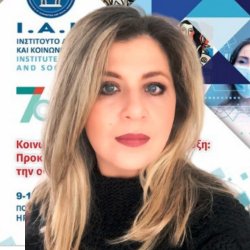
Marinaki Roula is a mediator in out of court settlements of legal disputes. She has a Master’s Degree in Adult Education. She has a Bachelor Degree in European Culture, in Pedagogical Education and Social Work. In addition she has received training as a counselor for adolescents and adults. Her scientific interests focus on transformative learning, educational research and evaluation of interventions, resolution of conflicts, adult education and empowerment of vulnerable groups.

papazachariaki@erasmus.iake.gr
Marilena Papazachariaki is a primary education teacher. She holds a Master’s Degree in Educational Psychology. In addition, she has a Bachelor Degree in Education and in Philosophic and social Studies. Her scientific interests focus on educational psychology, the prevention and promotion of mental health of children, sociology and political sciences.

Despoina Beladaki is a Founding Member of the Institute of Humanities and Social Sciences. She has a Bachelor Degree in Economics and an MBA in Business Administration. She has been involved in the Marketing and Sales department. She has specialized on the creation of an effective team, leadership skills, decision-making and teamwork.
In addition, she had participated in European Erasmus Programmes: 1. Erasmus University Students Exchange Program at the Università Cattaneo College &University in Milan 2. Youth in Action Programme on Cultural Diversity in Potsdan, Germany. Her scientific and research interests focus on Anxiety Disorders in the Workplace, Electronic Commerce and Business Management and Administration. She has a special interest in fashion design, interior design and photography.
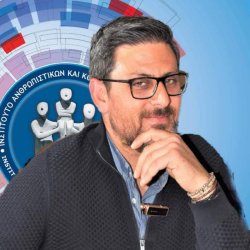
Nikos Sifakis is a founding member of the Institute of Humanities and Social Sciences. He is a primary education teacher in Heraklion. He holds a Master’s Degree in Distance Education with the use of IT and a Bachelor Degree in Education. In addition, he is the vice president of a teachers’ union in Heraklion. He has great experience in the Erasmus + programs, as he has participated in several projects. His scientific interests focus on the use of IT in the educational process and the implementation of distance learning.

Sofia Markogiannaki is the Head Teacher of a Primary School in Heraklion. She has a Bachelor Degree in Primary Education and in Social Work. In addition, she has attended a seminar in Educational Administration- the development of leaders in education. Her scientific interests focus on gender equality in public administration, preventing and tackling the phenomenon of school violence and bullying, the development of critical thinking and the use of technology in the teaching process.

Alexia Tsouvala teaches French to young learners in primary school. She holds a Master’s Degree in the teaching of the French language as a Foreign or International Language and o Bachelor Degree in French Language and Literature. She, also, has a diploma in Maîtrise de Lettres Modernes and a Licence and DEUG de Lettres Modernes. Her scientific interests focus on intercultural education, teaching the French language, the use of ICT in French language education and literature.
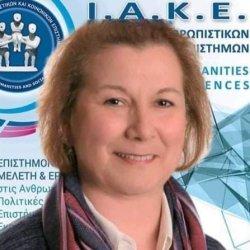
Popi Kaffetzaki is the Head Teacher of a Primary School in Agios Nikolaos. She has a Bachelor Degree in English Language and Literature and is a graduate student of a Master’s Degree in Educational Leadership and Administration. She has, also, received training in the field of learning disabilities as well as on teaching English to speakers of other languages.
In addition, she has been teaching English to young learners for 28 years and she has great experience as a contact person in European Programs such as the Comenius and the Erasmus+ Programs. Her scientific interests focus on environmental education, special education and educational administration

Eirini Theophanous is a primary education teacher and she has teaching experience in Special Education. She is a graduate student of a Master’s Degree in Teaching with the use of ICT. In addition, she has a Bachelor Degree in Primary Education and she has specialized in Distance Learning. Her scientific interests focus on the use of ICT in the teaching process, and special education.

Areti Chalkiadaki is an English teacher in Primary Education. She holds a PhD degree in Applied Pedagogy (Autonomous University of Barcelona, Spain). She, also, has a Master’ s degree in Human Resources Management (University of Bath, UK) and a Bachelor’ s degree in English Language and Literature (EKPA, Greece).
Her scientific and research interests focus on the predisposition of school culture towards the introduction of educational change and new practices aiming at the development of 21st century skills. She has published articles in international journals and offered seminars in the National Kapodistrian University of Athens, Greece, related to the aforementioned thematic areas.

Kyriaki Georgiakaki is an Informatics and Communication Technology Teacher and she has over 17 years of experience to young learners as well as adults. She has a Bachelor Degree in Informatics and Communication and she has a Master Degree in Special Education and Training.
Her research interests focus on everything has to do with technology and information technology as well as anything technologically new in field of education. She is aslo a Head of the Communication and Public Relations in a men’s Volley Team in Volleyleague, of Hellinic Volleybal Federation and a Team Manager of a basketball team as well as she is a Judge at basketball games.
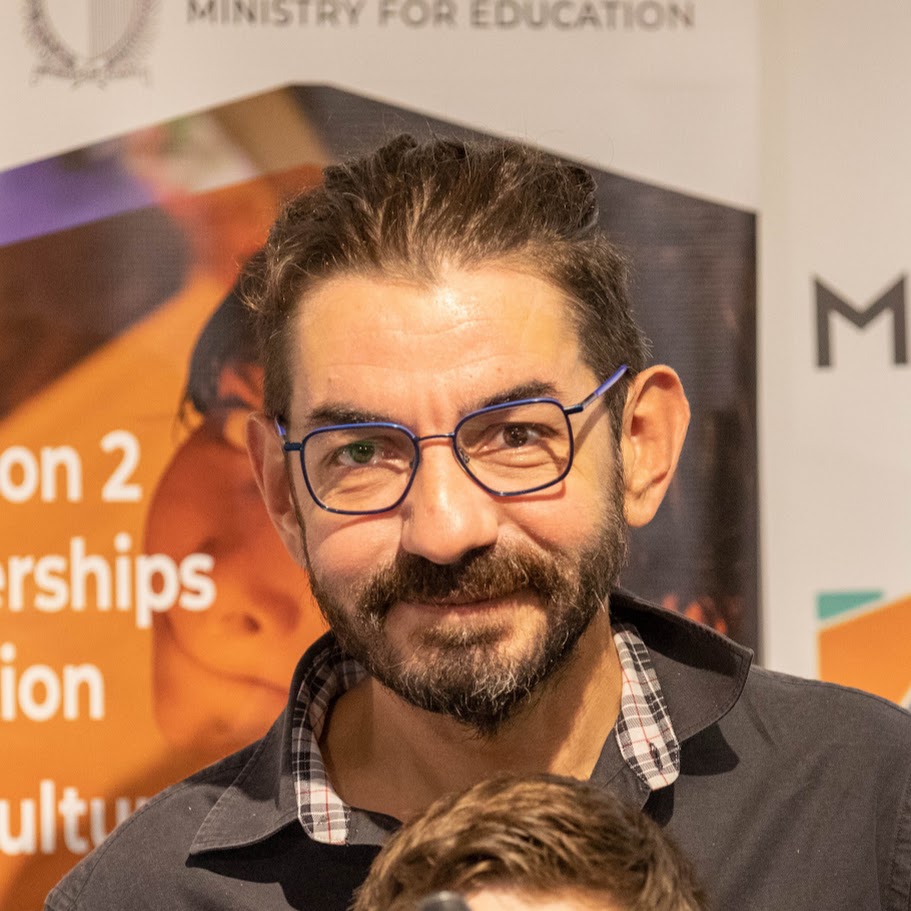
As evidence of his proficiency in both education and information technology, Fotis Kolokotronis boasts an impressive academic background. He has a solid background in information systems thanks to his bachelor's degree in information management from the Technological Educational Institution of Eastern Macedonia and Thrace.
Fotios earned a Master's degree in "Gender and New Educational and Working Environments in the Information Society" from the University of the Aegean, demonstrating his commitment to comprehending the social effects of technology. This further enhanced his credentials. His dedication to incorporating technology into educational environments is on full display as a current graduate student in the "Education Sciences: Distance Education using ICT (e-Learning)" program at the University of Crete. The way Fotios has progressed through his studies demonstrates his commitment to combining IT with educational innovations, positioning him for significant roles in the tech-education field. For Fotis Kolokotronis, the future of education lies in the seamless incorporation of ICT into classroom instruction. He is an expert in the field of information and communication technology (ICT) and focused on developing and implementing state-of-the-art e-learning environments. Digital learning infrastructure and school accreditation of digital skills are two areas where Fotios is actively engaged in innovation research programs around Europe. As an educator, he frequently uses web 2.0 tools and information and communication technologies to facilitate group projects like e-twinning and collaborative learning. His groundbreaking work in the area of information and communication technology (ICT) in education showcases fresh perspectives and methodologies.
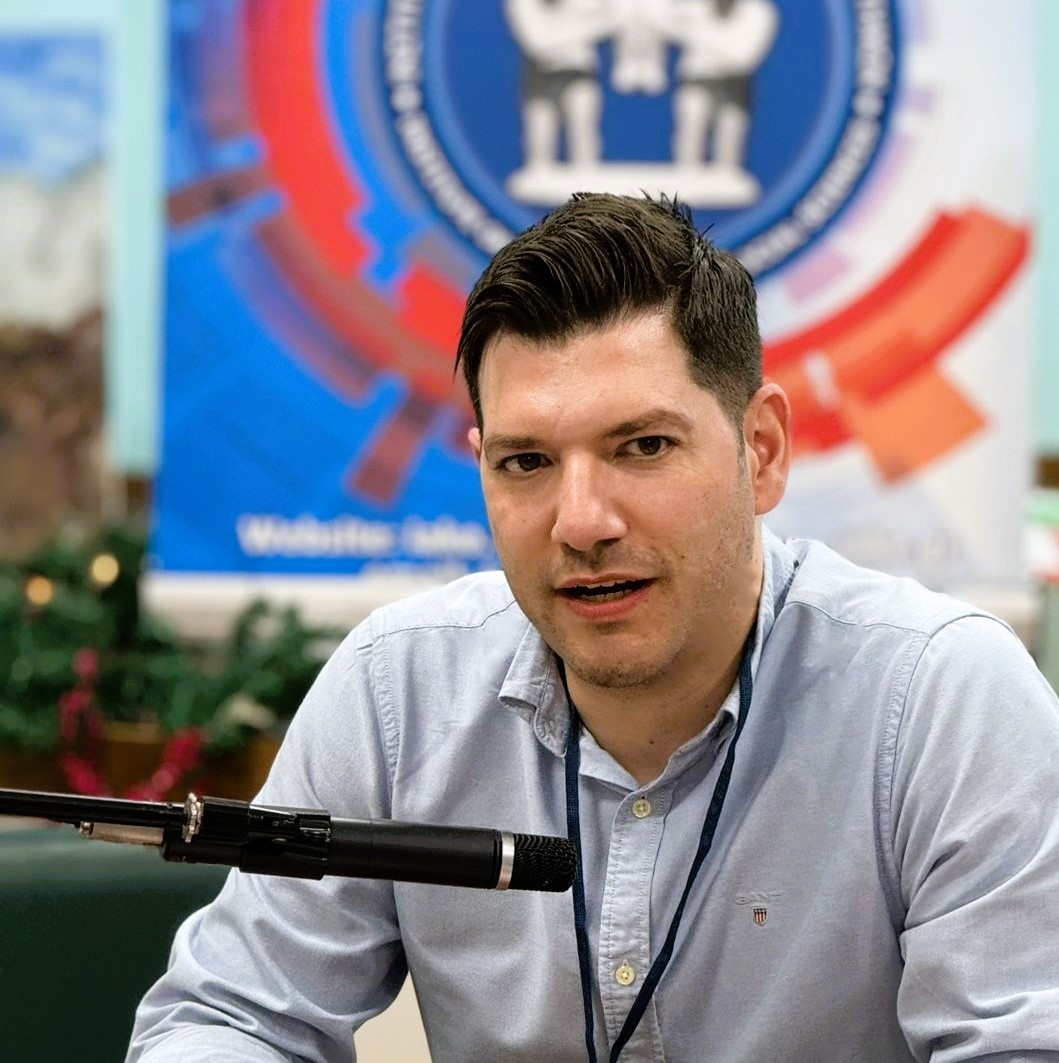
Leonidas Chalkiadakis is a Primary School teacher and a PhD Candidate on Digital Technologies in Education Theories and Educational Policy (Doctoral School of the Autonomous University of Barcelona, Spain). In addition, he holds a Master's degree in Special Education from the University of Nicosia, Cyprus, and a Bachelor's degree in Primary Education from the University of Crete, Greece.
The formulation of educational policies and the implementation of educational theories through the utilization of digital technologies are the primary focuses of his academic and research endeavors of interest. In addition, he actively engages in crisis management within the field of education. He has presented his work at a variety of conferences and published in international research journals.
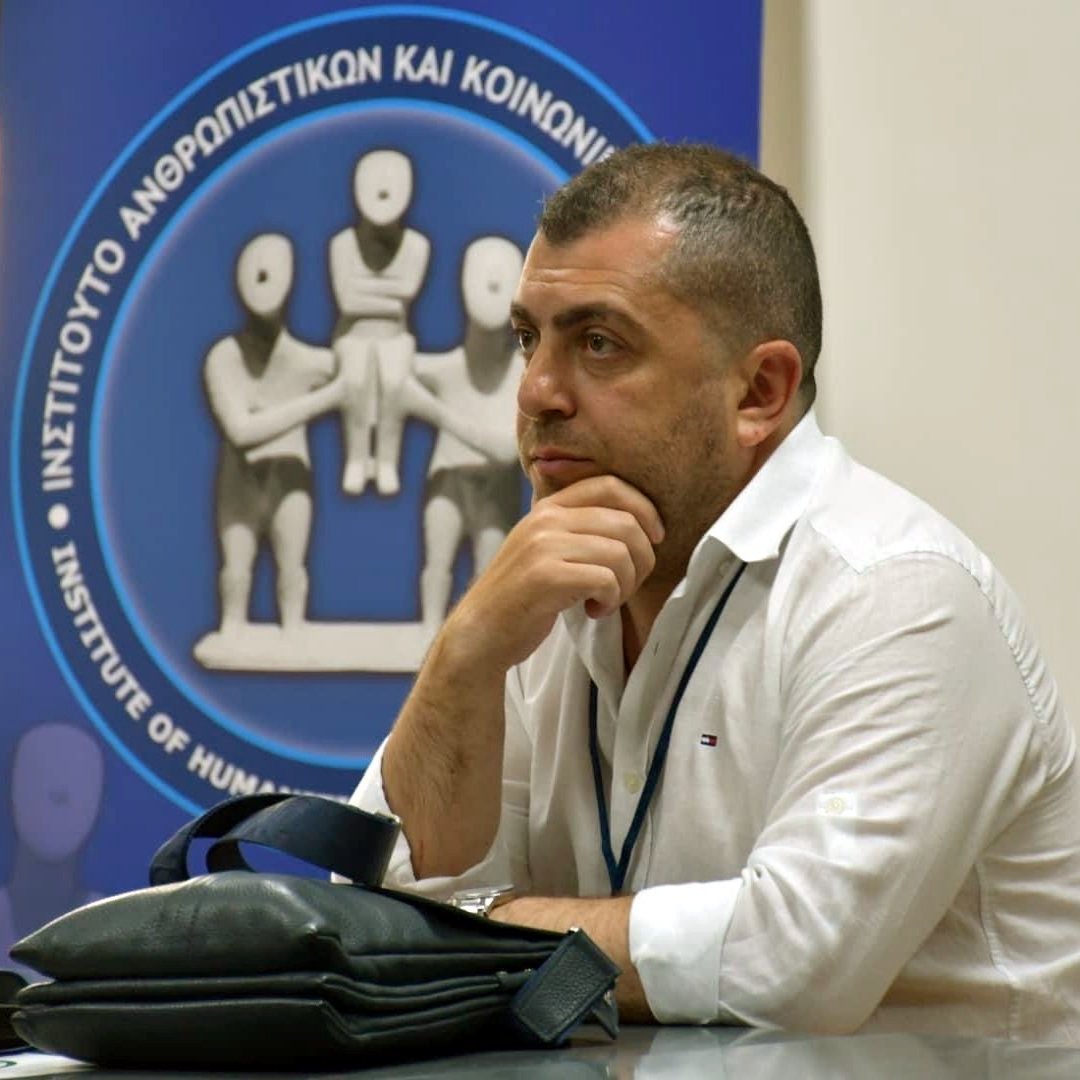
konstantinidis@erasmus.iake.gr
Christos Konstantinidis is a dedicated professional with a Bachelor's Degree in the Pedagogical Department of Elementary School from Democritus University of Thrace, Greece. In 2016, he completed an annual program on "Bilingualism in Intercultural Schools" at the University of the Aegean, totaling 600 hours. His diverse skill set includes a diploma in Photography and Videography from the SCHOOL of Crete EFEK. Furthermore, he successfully obtained a guide diploma from the Guide School of Rethymno in 2023, officially becoming a qualified guide of Greece.

Kyriaki Kanakaki holds a bachelor's degree in Pedagogical Sciences in Primary Education from the Democritus University of Thrace, as well as two postgraduate degrees: one in School Management and the other in Methodology of Foreign Language Teaching in an Intercultural Environment. She has accumulated extensive multidisciplinary experience in the field of education over the course of her career.
Her professional career is centred on intercultural education and alternative teaching methods, and she directs her research interests towards corresponding areas. She has held teaching positions in a range of educational settings, including general education schools, integration classes, and Refugee Education Reception Centres (ERCs). Her specialisation in special education and in teaching Greek as a second or foreign language, combined with her extensive training in related fields, makes her particularly adept at providing individualised education and supporting students with diverse educational needs. The incorporation of elements from the world of dance, into her teaching methods contributes to the active participation of all students and creates an enjoyable and collaborative learning environment. Her active participation in school activities and her volunteer work demonstrate her high sense of responsibility and dedication to the educational process.
Experience Crete
"The homeland of Europe"
People, Language, Culture, Environment, Nutrition
If you want to study the Cretan language and culture, you are in the right place! Through this program, trainees of all nationalities, adult learners, students, tourism professionals, teachers, etc. have the opportunity to attend a learning experience in another country. At the same time, they will improve their knowledge as well as their mental, psycho-emotional and social skills. Moreover, they are given the opportunity to improve their language skills, to come into contact with a new culture and to develop the sense of European consciousness and identity. IAKE’s commitment to academic knowledge, high quality education and guaranteeing proper recognition of student learning outcomes will meet all expectations.
Travelling to the Minoan Crete
From the "Tavrokathapsia" of Knosos to the arenas of modern bullfighters.
If you want to study the Minoan civilization, then you are at the right place! Through this program, trainees of all nationalities, adult learners, students, teachers, etc. have the opportunity to experience a learning experience in another country and to acquire knowledge and skills for Europe’s most famous and ancient culture. At the same time, they will improve their linguistic, mental, psycho-emotional and social skills while having the opportunity to interact with a new culture and develop a sense of European consciousness and identity. IAKE’s commitment to academic knowledge, high quality education and guaranteeing proper recognition of learning outcomes for trainees will overcome all your expectations.
The footsteps of the the "Erotokritos"
Vitsentzos Kornaros: The Skakespeare of the Cretan Renaissance.
Language, Culture, Music, Dances, People.
This program about the culture of Crete is being developed in the beautiful city of Heraklion, but also in other towns and villages of the most beautiful island of Southern Greece. Trainers will have the opportunity to know, study and explore the richness of this culture, especially the linguistic idiom that gave birth to one of the greatest masterpieces of Cretan and Greek literature. The aim of the program is to create and develop strong links between citizens from different countries through acquaintance with important works of European literature. At the same time, trainers of all nationalities, adult learners , students, tourism professionals, teachers, etc. will improve their mental, psycho-emotional and social skills through group and cooperative activities. IAKE'S commitment to academic knowledge and high quality education will overcome all your expectations.
Mediterranean Diet and Education
Outdoor training Education as a reforming factor can help improve human life. If we teach children how to choose their meals correctly then we will help them stay healthy in their life. The Mediterranean diet due to its nutritional value, well - structured meals and the abundance of olive oil, has proven to be the most effective in preventing various diseases
